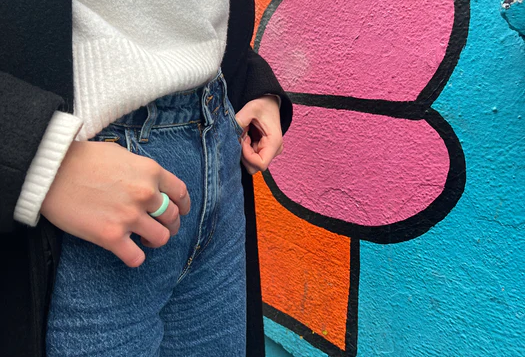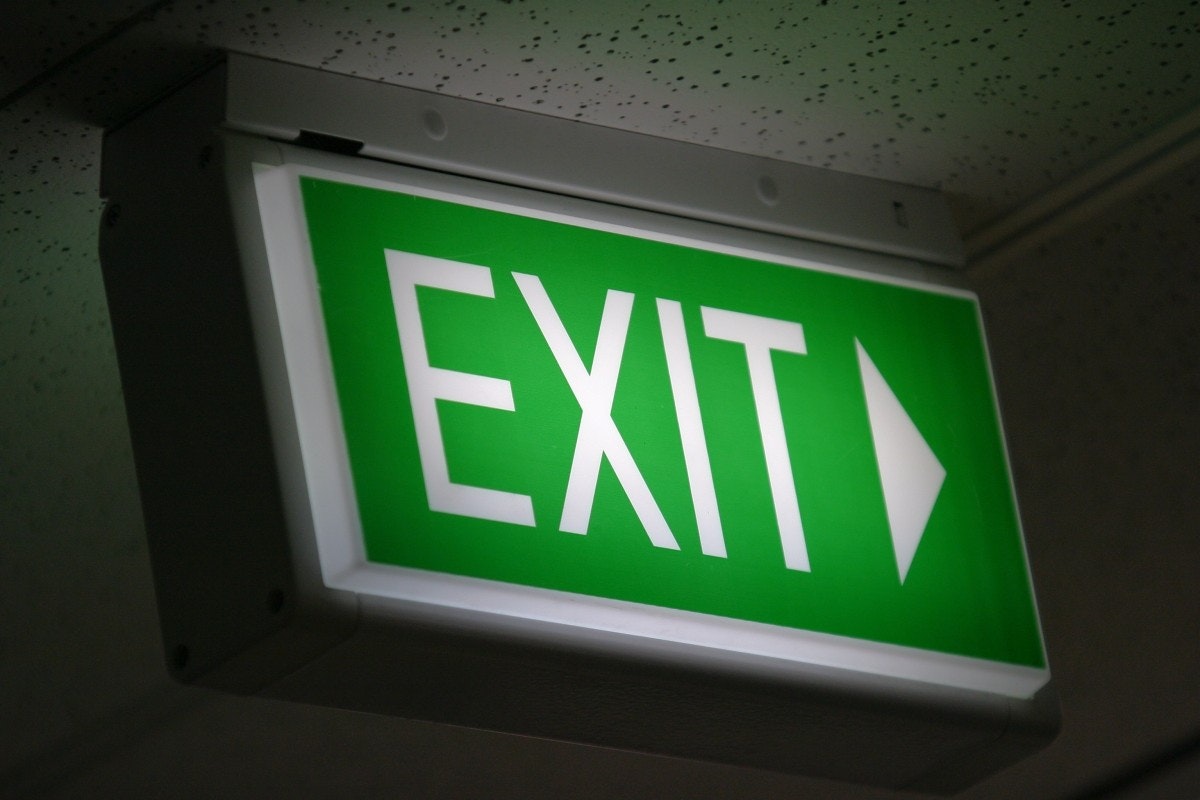New ring aims to make dating apps obsolete
A new, turquoise-green ring called “Pear” aims to abolish dating apps. By publicly outing yourself as “single and looking” through the bright green piece, it should make it easier to get to know each other in real life.
A similar concept is known from the Oktoberfest, where dirndl bows are tied on the right, left, front or back according to the relationship status – or of course from the good old Facebook status. The name Pear comes from pairing rather than pear, its English translation.
In order for the Pear-Ring to work, however, the code must be known among singles – just like at the Oktoberfest. This is exactly what the manufacturers have made their goal: maximum awareness, worldwide. Her Instagram name is @biggest social experiment.
The green silicone ring costs 23.95 euros and, in addition to the ring itself, includes an invitation to the “PearFest”, the “biggest singles event in the world” (it is not yet known what that is or where it takes place) and access to exclusive events in the Vicinity.
100 percent of the profits from the ring sales will benefit the further scaling of the project. The sale is processed via the Shopify e-commerce platform.
“If 1.2 billion single people around the world wore a little green ring on their finger to show they were single, we wouldn’t need dating apps. IRL [in real life] Connection is the mission,” it says on the website.
Editor’s Recommendations
The ring comes in eight sizes. Measuring is smartly designed: you can select your perfect ring size on the website with the help of a template graphic. All you have to do is adjust the graphic to the size of a credit card by scrolling and then compare an existing ring with the given dimensions.
According to the website, 91 percent of the rings are already sold out – but this status has apparently changed not changed in the last ten days and thus exposes itself as a marketing claim.
What initially sounds like a funny idea has tragic roots. Because young people are lonely. Among Gen Z 18-24 year olds, four in five (79 percent) began to feel lonely – compared to 41 percent of seniors aged 66 and older.
79 percent of young people say they feel lonely. (Graphic: The Cigna Group, Dec 2021)
More than two in five adults (42 percent) aged 18 to 34 say they feel excluded, compared to just 16 percent of those aged 55+.



